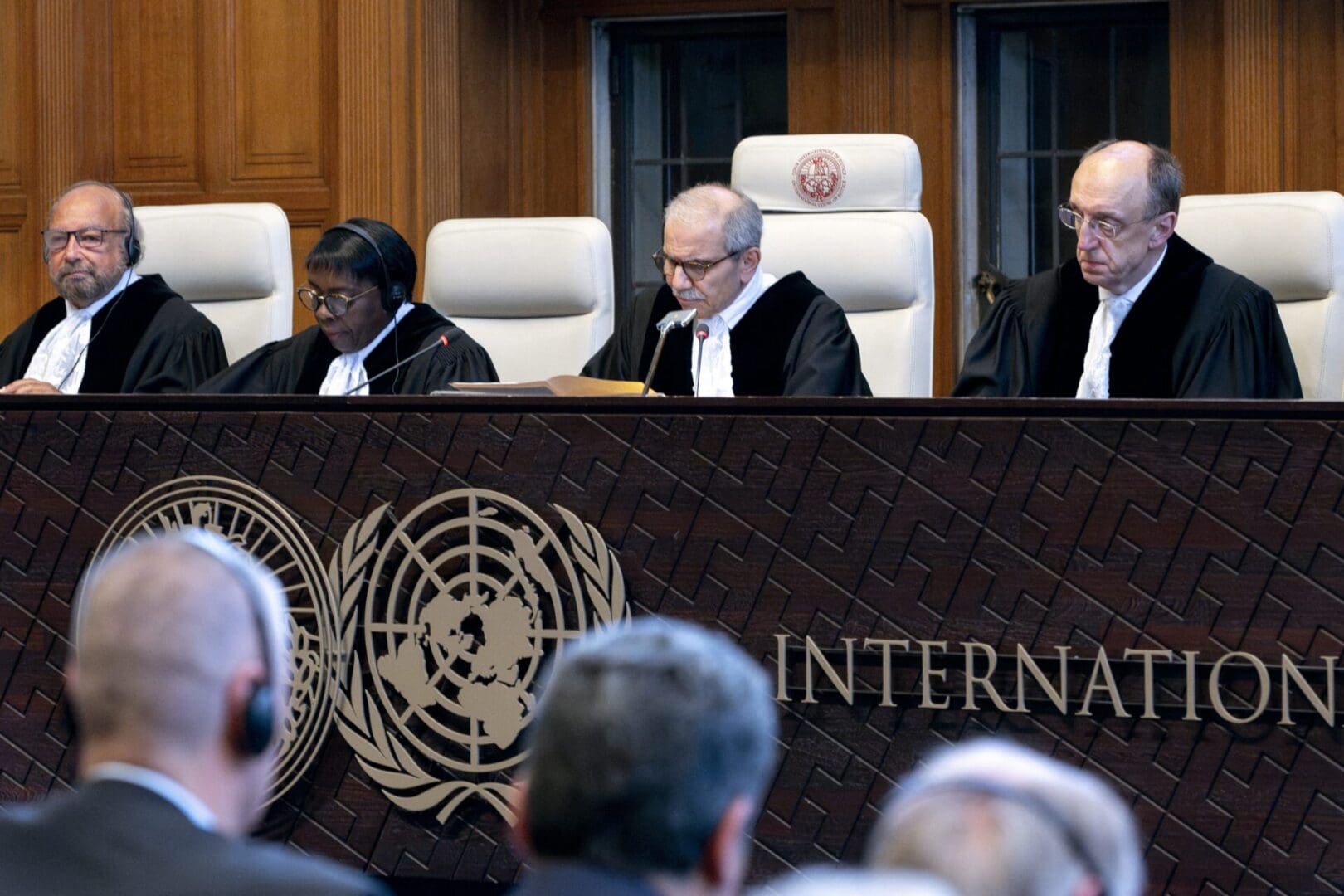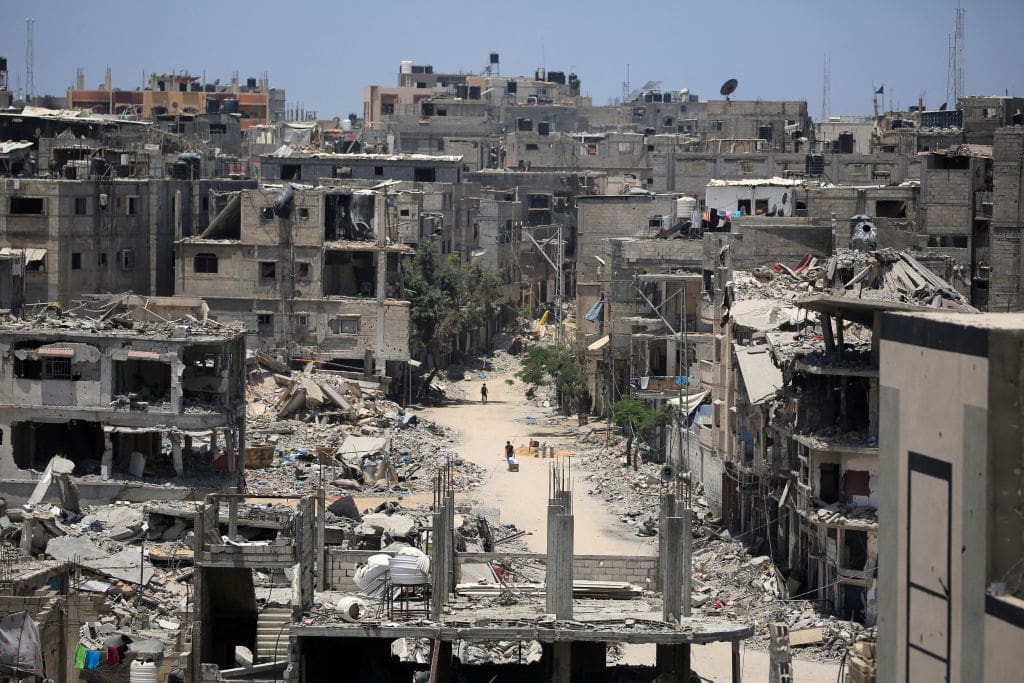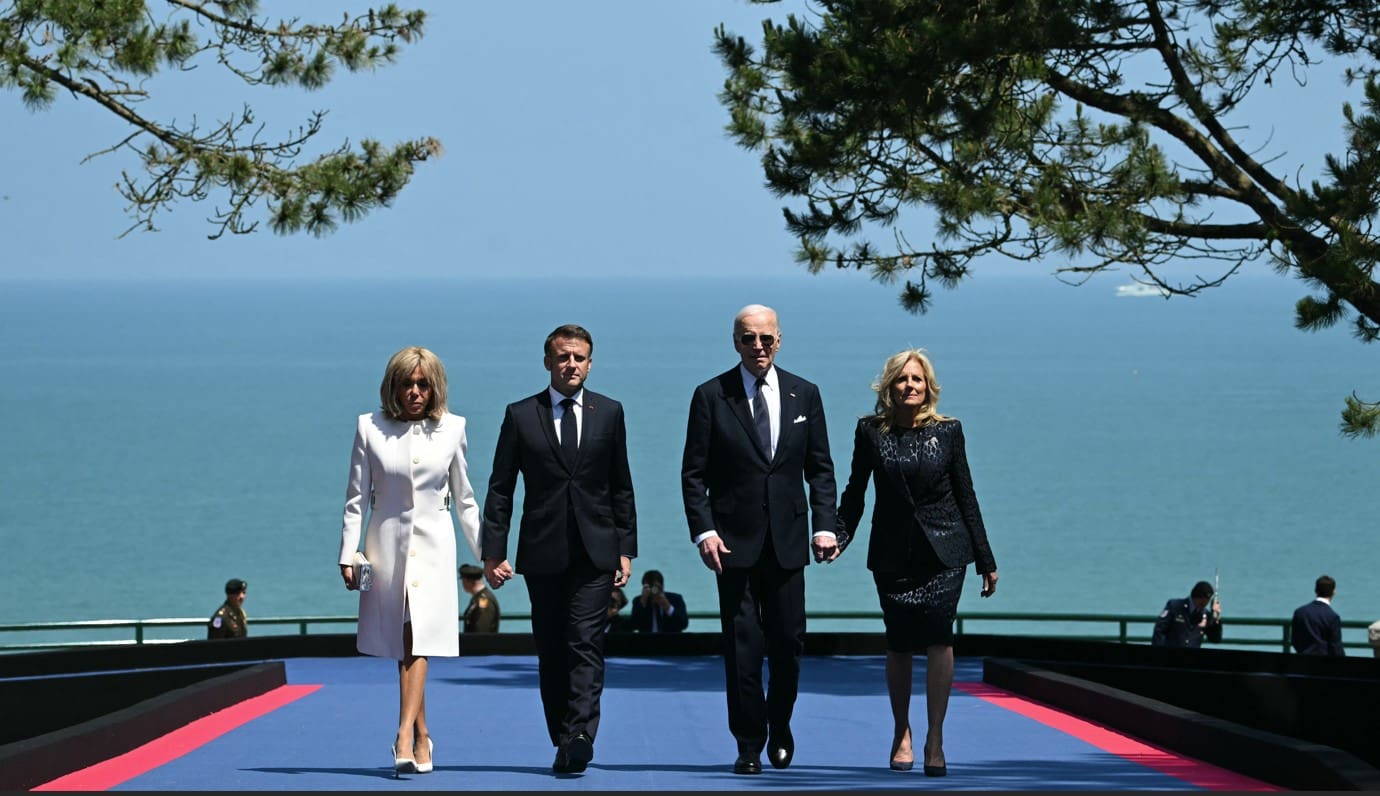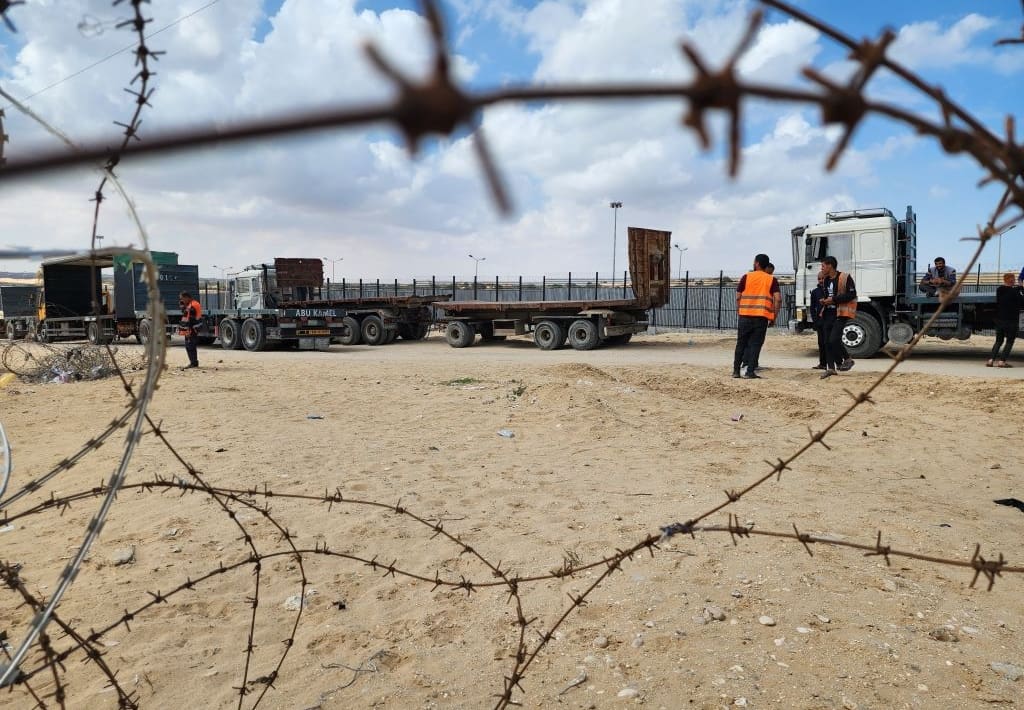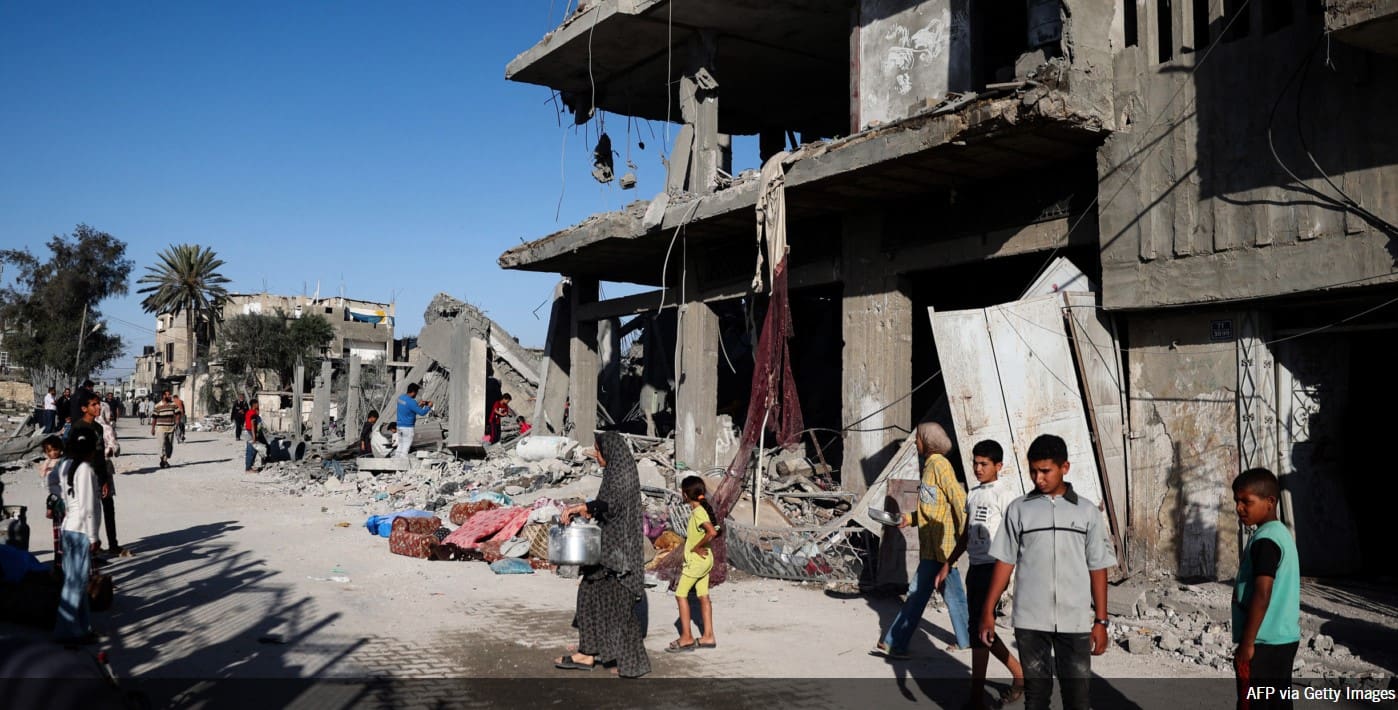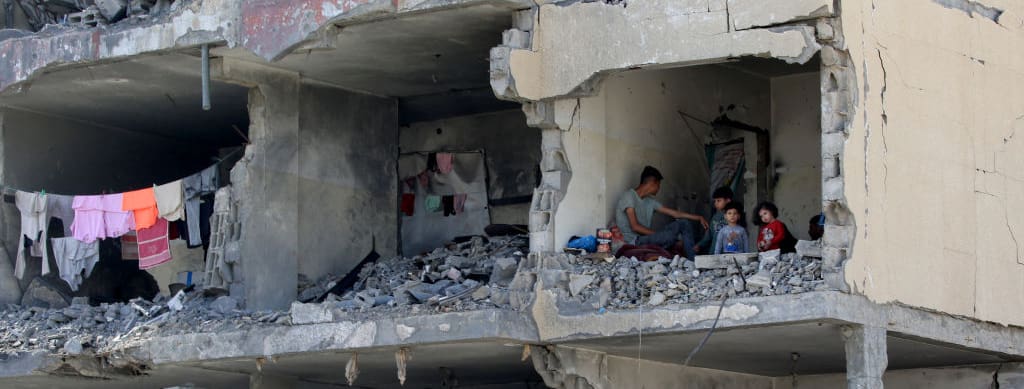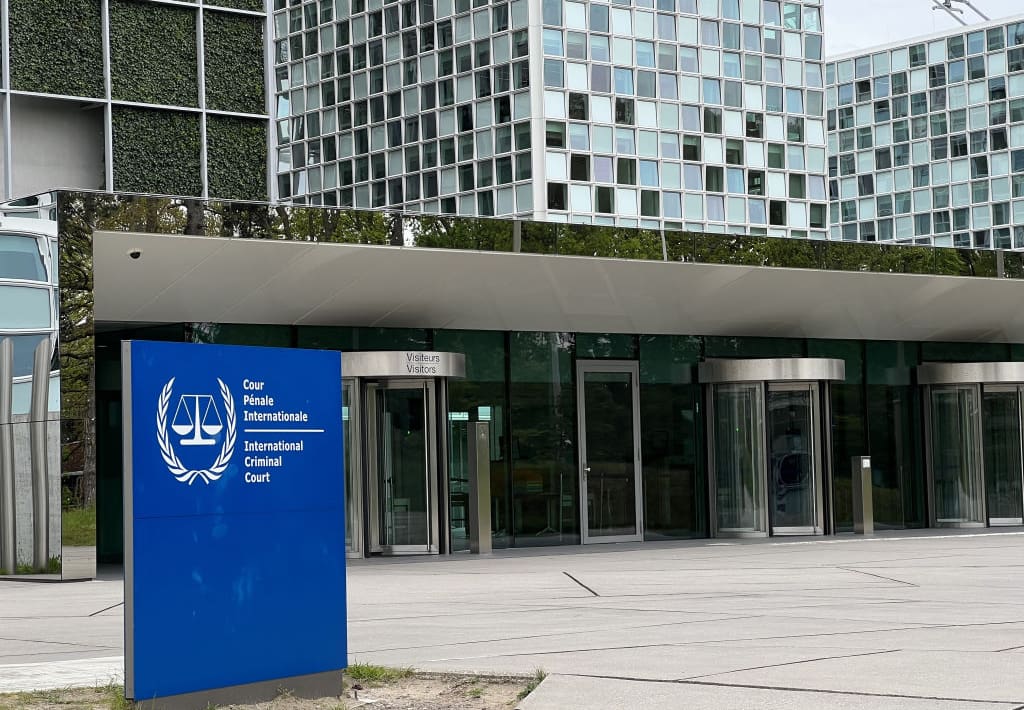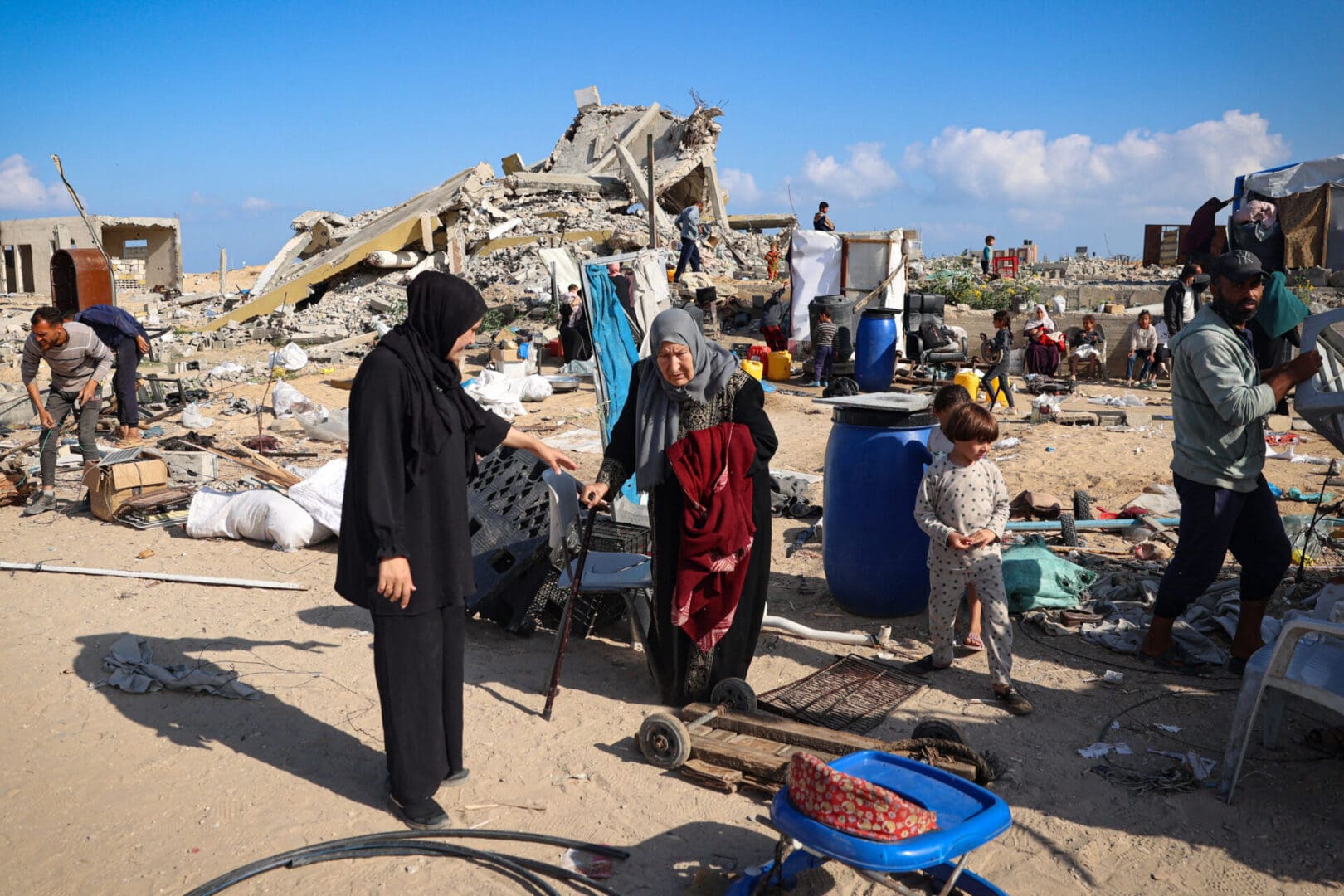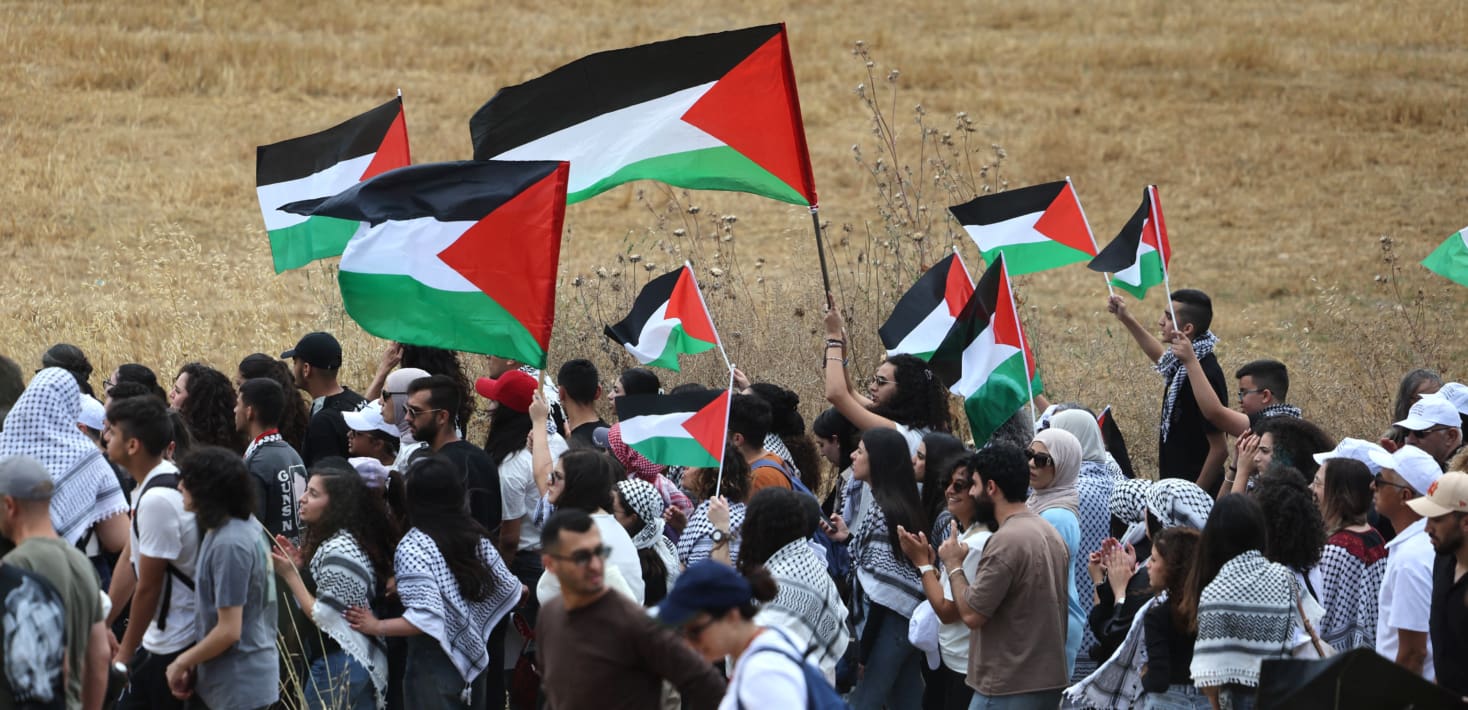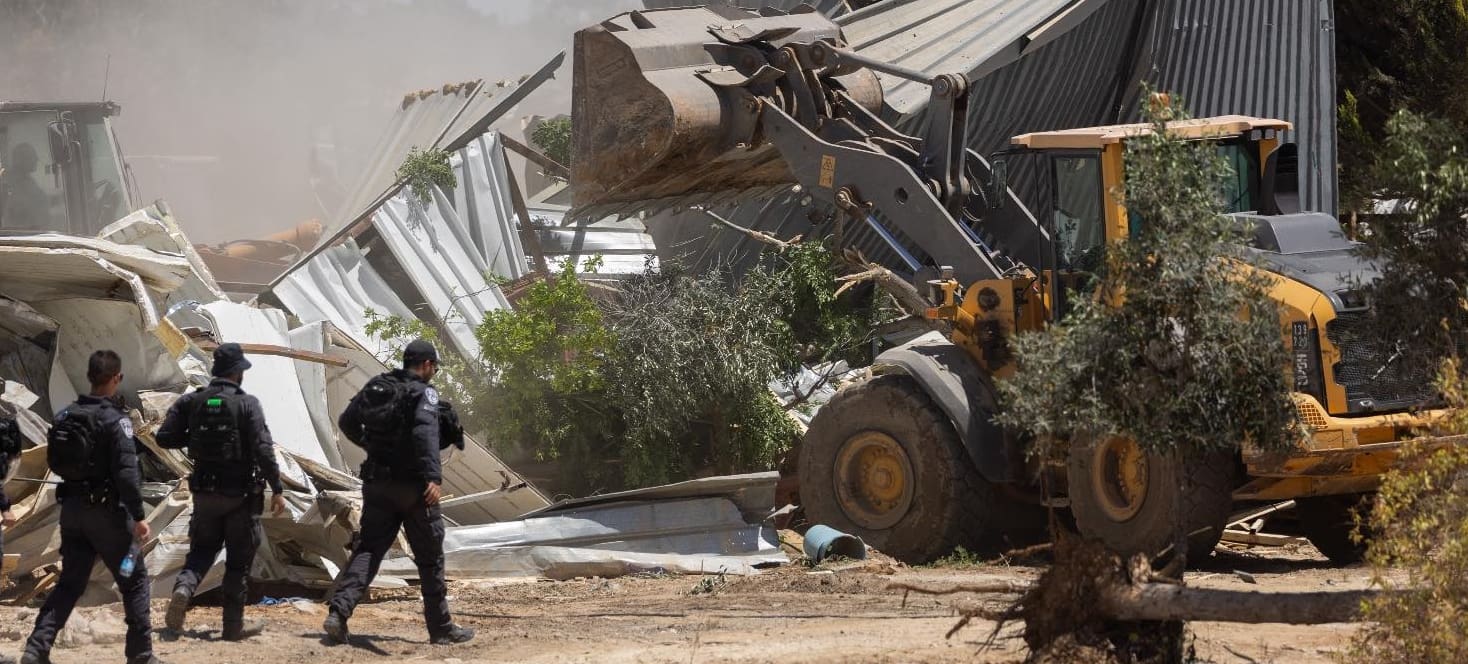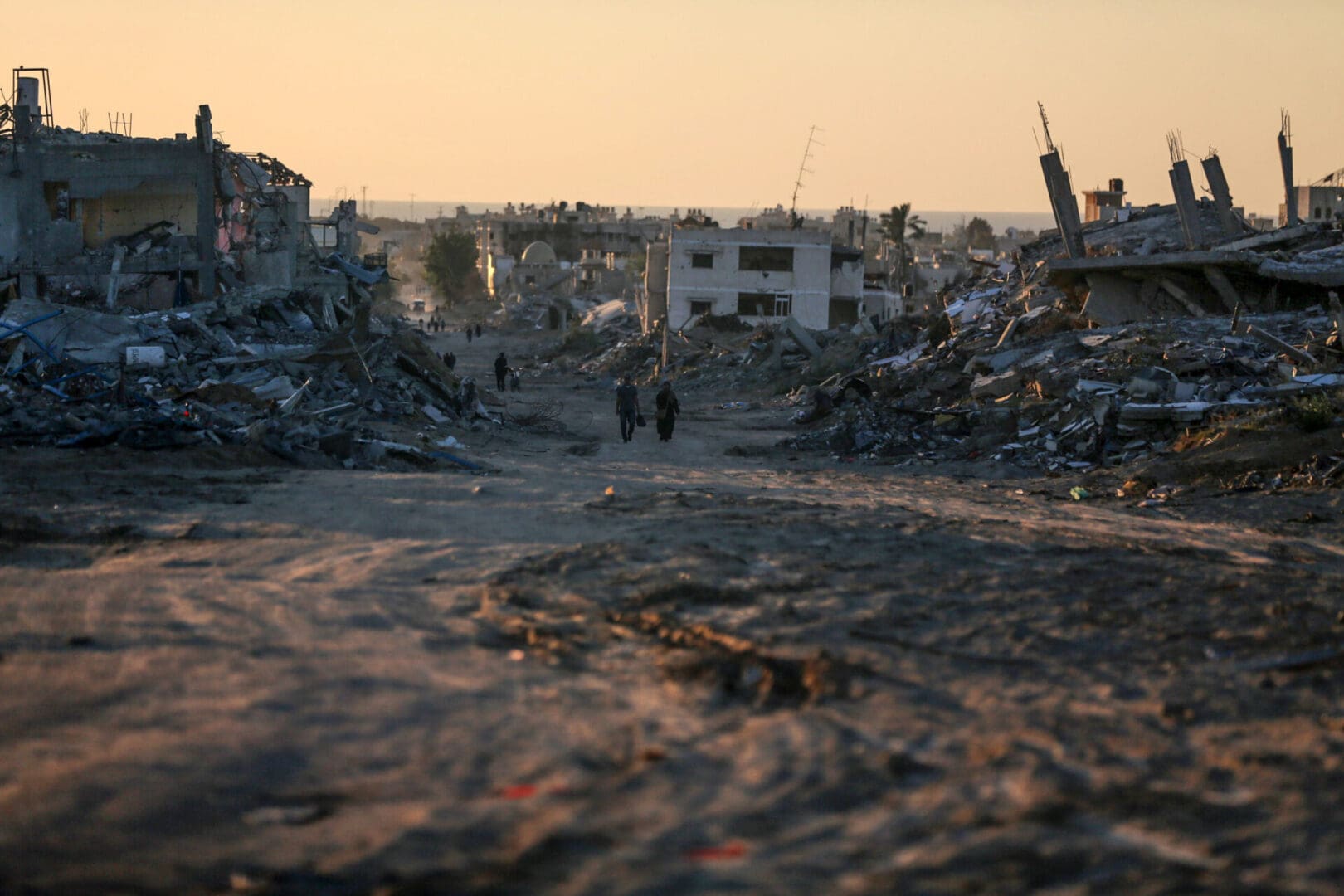How Can You Help Now?
Our “AIUSA Toolkit: Occupied Palestinian Territories and Israel” includes ways you can get involved today!
Amnesty is calling on President Joe Biden to:
- Immediately suspend the direct and indirect supply, sale, or transfer of all weapons, munitions, and other military and security equipment to the Israeli government and make clear that the U.S. will not tolerate the perpetuation of war crimes or crimes against humanity with weapons it has provided. We are not just asking President Biden and his administration to follow international law, we are demanding they implement their own policies regarding human rights and civilian harm reduction.
- Work to demand an immediate and permanent ceasefire today to save lives and alleviate the humanitarian catastrophe in Gaza. A humanitarian pause or temporary ceasefire is not enough. With each day that passes, more lives are lost, and the human-engineered humanitarian catastrophe in Gaza is getting worse. This shocking and unconscionable suffering, death toll, widespread destruction, engineered hunger and malnutrition, deliberate denial of humanitarian aid as part of an illegal siege, racist and dehumanizing rhetoric by Israeli officials, and the wider context of Israel’s apartheid system are all warning signs of genocide against Palestinians in Gaza. Enough is enough.
- Demand that Hamas and other Palestinian armed groups in Gaza release all civilian hostages unconditionally and immediately and treat all those being held captive humanely, including by providing medical treatment, pending their release.
- Demand the lifting of restrictions on delivery of urgent humanitarian aid, including especially food and medical supplies, to Gaza in sufficient quantities to meet the dire needs of the civilian population, and urge the Israeli government to immediately restore Gaza’s supply of electricity, water, fuel, and food and rescind the unlawful evacuation order.
- Call on the Israeli government to lift the unlawful 16-year blockade on Gaza, and dismantle its system of apartheid imposed over Palestinians.
#CeasefireNow: Prevent Further Loss of Civilian Lives
Ensure access to life-saving aid for people in Gaza and provide an opportunity to secure the safe release of hostages
Reports
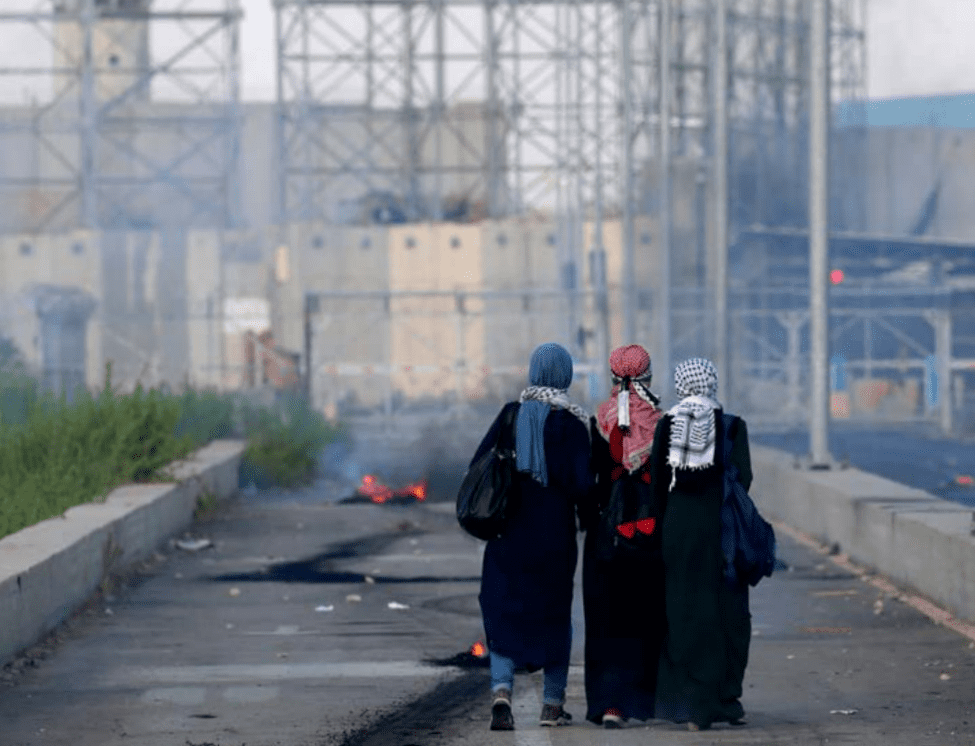

Israel’s Apartheid Against Palestinians: Cruel System of Domination and Crime Against Humanity
Amnesty International has analyzed Israel’s intent to create and maintain a system of oppression and domination over Palestinians and examined its key components: territorial fragmentation; segregation and control; dispossession of land and property; and denial of economic and social rights. It has concluded that this system amounts to apartheid.
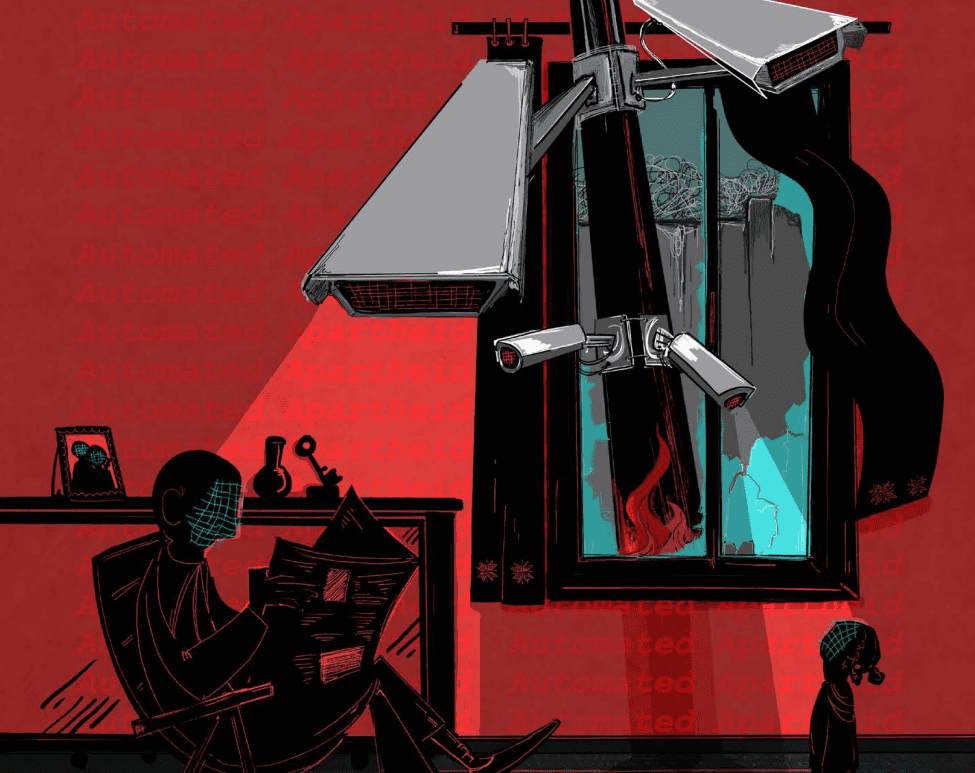

Automated Apartheid: How Facial Recognition Fragments, Segregates and Controls Palestinians in the OPT
In this report, Amnesty International explores how facial recognition technology is used extensively by the Israeli authorities to support their continued domination and oppression of Palestinians in the OPT.
Overview
On 10-13 May, Palestinian armed groups fired hundreds of indiscriminate rockets towards Israel. On 7 October, fighters affiliated with the armed wing of Hamas and other Palestinian armed groups entered southern Israel and killed at least 1,000 people, most of them civilians, including 36 children; took some 245 hostages and captives. Around 12,000 rockets were fired from October towards Israel, killing 15 people there. During the year, Palestinian authorities in the West Bank and the Gaza Strip repressed the rights to freedom of expression, association and assembly. Torture and other ill-treatment were reported in Palestinian detention centres. Members of Palestinian armed groups summarily killed several suspected “collaborators”. In Gaza, death sentences were passed and executions were carried out.
BACKGROUND
Palestinians throughout the Occupied Palestinian Territories (OPT) and in Israel, as well as Palestinian refugees, continued to suffer the impacts of Israel’s system of apartheid.
Less than 40% of the occupied West Bank continued to be administered by Fatah, a nationalist Palestinian party, while the occupied and besieged Gaza Strip was administered by Hamas, a nationalist Islamist party, in the absence of national elections since 2006. In July, leaders of the rival Palestinian factions met in Egypt for a “reconciliation committee”, with no outcomes.
The poverty rate among Palestinians reached 25%, according to the World Bank, affecting particularly Gaza, where, before October, 73% of residents already depended on humanitarian aid. In January, Israel withheld the transfer of taxes collected by Israeli authorities on behalf of Palestinian authorities. The resulting funding deficit exacerbated poverty, with public sector employees receiving reduced wages and businesses constrained by Israeli restrictions. The transfer of tax revenues to the authorities in the West Bank partly resumed in November.
Gaza’s economy and infrastructure collapsed in October under the destruction wrought by Israel’s military operation combined with the tightening of Israel’s 16-year illegal blockade. After the first month of conflict, the UN Development Programme found that 96% of people in Gaza needed basic support for survival. The effects of the conflict also negatively impacted the economy in the West Bank. In Gaza, Israeli forces killed 21,600 Palestinians, according to Gaza’s Ministry of Health (see Israel and the OPT entry), while in the West Bank, they killed 493 Palestinians, making 2023 the deadliest year since at least 1967.
In October and November, Qatar and other intermediaries negotiated the release by Hamas of 109 hostages and by Israel of 240 Palestinians from Israeli detention.
Key Issues
Abuses by armed groups based in Gaza
In May, Al-Quds Brigades, affiliated with Palestinian Islamic Jihad, and smaller armed groups, fired hundreds of indiscriminate rockets towards Israeli towns, killing two civilians in Israel and three Palestinian civilians in Gaza, including two children. Israeli forces had killed Palestinian fighters as well as 10 civilians in Gaza on 9 May (see Israel and the OPT entry).
On 7 October, Hamas fighters and members of other Palestinian armed groups, and armed individuals, entered southern Israel and attacked military and civilian areas. Video evidence showed fighters deliberately shooting at civilians and taking civilians as hostage. According to Israeli official records, at least 1,000 people were killed, the majority civilians. One of the sites attacked was the Nova music festival in Re’im in south-west Israel, where 364 people were killed, according to the Israeli police.1 Among those killed were Palestinian workers from Gaza and migrant workers from south-east Asia.
Hostage-taking
On 7 October, Palestinian armed groups took some 245 hostages and captives, including children and older people. Hostage-taking is a war crime under international law. Palestinian fighters abducted two-year-old Aviv Asher and her four-year-old sister Raz from kibbutz Nir Oz on 7 October and held them hostage until 24 November. Hamas released four hostages on 20 and 23 October, in coordination with the ICRC. Between 24 and 30 November, Hamas released 105 more hostages, some of whom reported ill-treatment. The ICRC was denied access to those held.
Other unlawful attacks
Some 12,000 indiscriminate rockets fired in the 12 weeks from October killed 15 people in Israel, according to Israeli authorities, and damaged buildings in Israel and Palestine. A rocket fired from Gaza on 7 October killed five children aged between 11 and 14 in the Bedouin village of Kuhleh in the Negev/Naqab in southern Israel. Some 120,000 Israelis were displaced from their homes in southern Israel due to Palestinian armed groups’ attacks.
According to the Palestinian Centre for Development and Media Freedoms (MADA), assaults against journalists increased, especially when they covered events that were critical of the authorities. Palestinian police generally dispersed independent protests quickly, using excessive force.
West Bank
Palestinian security officers routinely harassed protest organizers and dissidents with threatening phone calls and visits. On 18 June, Palestinian Preventive Security forces beat Abdel Majid Hassan, head of Birzeit University student council. They then detained him and fellow student Yahya Farah in Ramallah for a month. The students’ families reported that they were tortured.
In October, Palestinian police used force to disperse demonstrations in solidarity with people in Gaza, in apparent coordination with Israeli military officials. On 17 October, after al-Ahli hospital in Gaza City was hit, protesters in Ramallah, the West Bank’s administrative centre, gathered to protest the inaction of Palestine’s President Mahmoud Abbas. They were dispersed with stun grenades and tear gas.
Gaza Strip
On 30 July and 4 August, thousands of demonstrators in Gaza City and Khan Yunis demanded that the Hamas administration supply fuel and electricity reliably and stop requisitioning welfare payments from families in poverty. The demonstrators were violently dispersed; dozens were arrested. Plain-clothes officers assaulted a journalist covering the protest on 30 July in Gaza City, according to MADA. In Khan Yunis, police destroyed the phones of protesters who had filmed the events, according to journalists at the scene.
West Bank
Presidential decrees appointed favoured officials throughout governmental and judicial institutions in the West Bank, undermining the independence of the judiciary.
On 5 June, officers interrogated the directors of Aman, a coalition of civil society organizations working for governmental accountability. The directors were accused of “defamation of high officials” after the publication of their annual report on 17 May.
Gaza Strip
In January, Palestinian police officers disrupted workshops for journalists and students organized by a women’s group in Gaza City. Police interrogated staff about violating rules on gender segregation, and forced them to sign morality “pledges”, according to testimonies given to the UN commission of inquiry.
According to the Independent Commission for Human Rights (ICHR), which acts as the Palestinian national human rights institution, 235 Palestinians were arbitrarily detained in the West Bank and 61 in Gaza, where no data is available from October.
In the West Bank, Palestinian legal services organization Lawyers for Justice reported that in June and July, at least 20 journalists, political activists and lawyers were arbitrarily arrested on charges of defaming the Palestinian authorities, inciting ethnic strife, and slandering the president.
Legal proceedings in relation to the 2021 death in custody in the West Bank of dissident Nizar Banat stalled amid bureaucratic delays and intimidation of witnesses.2
ICHR received 94 complaints of torture and other ill-treatment in Palestinian detention in the West Bank and 86 in Gaza.
In Hebron in the West Bank, Palestinian forces arbitrarily detained 22 Palestinians on 23 May and tortured all of them, according to Lawyers for Justice. Consequently, five had to be hospitalized, their families said.
On 8 April, members of a Palestinian armed group in Nablus city in the northern West Bank killed a man they suspected of working for Israeli surveillance, the first killing of an alleged “collaborator” in nearly 20 years. On 24 November, members of an armed group in Tulkarem refugee camp west of Nablus publicly killed two Palestinian men who they claimed were “collaborators”. Palestinian police made no arrests in either case.
In Gaza, armed men affiliated with Hamas rounded up approximately a dozen men on 21 November, alleging that they worked for Israeli forces, and summarily killed them.
The Palestinian authorities in Gaza imposed new death sentences, according to Palestinian human rights organization Al Mezan. Executions of prisoners on death row for “collaboration with the enemy” were carried out on 7 October.
Women still did not have equal rights to men in personal status law, which continued to be subject to religious law. According to the Palestinian Central Bureau of Statistics, 59% of married women and girls experienced violence at the hands of their partner, and the Women’s Centre for Legal Aid and Counselling expected the numbers for 2023 to rise due to conflict and deprivation. Less than 2% of survivors complained to the police, and of those cases, 40% were investigated, according to the Palestinian Initiative for the Promotion of Global Dialogue and Democracy.
Sisters Wissam and Fatimah al-Tawil were arrested without explanation on 5 January from a safe house where they had escaped their father’s abuse. Hamas security services handed them over to their paternal uncle, who drove them to their father’s home in Rafah in the south of Gaza. They were subsequently not heard from directly, as their father held them captive.3
On 25 September, Palestinian police together with UN agencies opened an office for investigating and prosecuting domestic violence in Hebron, after a similar office opened in Nablus.
Consensual same-sex sexual conduct continued to be banned in Gaza on the basis of a 1936 British Mandate ordinance.
In September, after the UN Relief and Works Agency (UNRWA) published guidance to staff regarding treating all genders and LGBTI people equally, the Hamas authorities condemned the guidance for promoting “deviance and moral decay”.
Palestinian authorities in the West Bank failed to meet their goal of recycling 30% of domestic solid waste, which was generated at the high rate of 1kg per capita daily, according to the Palestinian Central Bureau of Statistics. Less than 10% of plastic was recycled, and a third of solid waste polluted the environment in unregulated dumps, according to Heinrich Böll Stiftung, a political foundation affiliated with the German Green Party.
Relevant Links
- Amnesty International Report 2023/24: The state of the world’s Human Rights
- Palestine: New government must reverse human rights decline
- Palestine: End arbitrary detention of critics in West Bank and Gaza
- Israel’s refusal to grant Palestinian refugees right to return has fuelled seven decades of suffering
- Airbnb, Inc is deeply compromised by Israeli settlement properties
- Pattern of Israeli Attacks on Residential Homes in Gaza Must Be Investigated As War Crimes
- Fighting for Justice From Gaza To Ferguson: Black and Palestinian Solidarity
- For Israel/OPT/Palestine Video Archive

